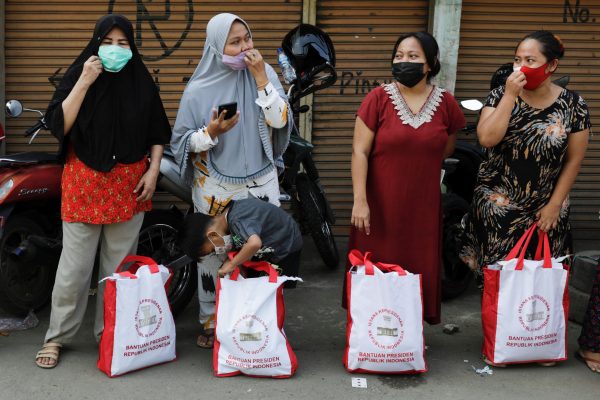Research has consistently shown that because women have different consumption patterns due to gendered social roles, they are often disadvantaged by the structure of VATs compared to men. But gender mainstreaming in tax design and implementation can mitigate this risk and offer an equaliser for inequality.
In theory, there are multiple advantages of a multi-tariff VAT. The number of goods and services to which Indonesia’s current 10 per cent VAT rate is applied, and its VAT-to-GDP ratio of around 3.6 per cent, are relatively low compared to other countries, suggesting untapped potential. By taxing more forms of consumption the government could broaden the tax base, close loopholes and increase tax revenues. In other words, the new scheme has the potential to increase economic efficiency and state revenues.
On the other hand, VATs unavoidably raise equity issues. Like other indirect taxes, VATs usually have regressive effects: because they are applied equally to everyone regardless of income, those in the lower-income bracket will spend a greater proportion of their wage on consumption.
Gender appears to compound these regressive effects. Because women tend to spend more of their earnings on basic needs and family essentials, they too stand to be disproportionately impacted if VAT exemptions are not appropriately applied. Studies from countries as far apart as Nicaragua and South Africa have revealed that female-headed households — especially those with children and in lower income brackets — are the most vulnerable to the distributional effects of VAT.
Moreover, entrenched social norms have confined women to domestic and reproductive roles, assigning them as primary caregivers and homemakers. Data from the OECD confirms that worldwide, women perform up to ten times more unpaid care work than men. The double burden of work and unequal distribution of domestic work leads to lower incomes for women, constraining their economic agency. Indonesia’s Central Bureau of Statistics revealed in February 2020 that women earn 23 per cent less than men. For that reason alone, increases in indirect taxation, as opposed to more progressive direct taxes, will disproportionately impact women.
To mitigate the disproportionate effects of tax reform on the poor, the Indonesian government has stated in its 2022 Macroeconomic Framework and Fiscal Policy Principles that the new VAT scheme will be made fairer and less regressive by putting lower tariffs on basic needs and recycling new revenues into social programs and transfers to the poor. But given the lack of gender mainstreaming in taxation policy, gender-specific needs are at risk of being overlooked in tax analysis and policy formulation.
Applying a gender lens in tax policy has become all the more critical because of the widening gender inequality during the COVID-19 pandemic. The increasing gap in economic participation and opportunities between men and women has seen Indonesia’s rank in The WEF Global Gender Gap fall from 85th in 2020 to 101st in 2021. The percentage of Indonesian women in senior positions has also plummeted from 54.9 per cent in 2020 to 29.8 per cent in 2021. A study by the UN Development Programme in 2020 showed that more than 37 per cent of women-owned businesses in Indonesia experienced reductions in income of up to 60 per cent.
New revenue from VAT reform must be used urgently to fund social security and welfare programs that alleviate the impact of the pandemic on women and vulnerable groups. The government’s inability to collect adequate revenues could undermine the sustainability of social and public services provision post-pandemic. In turn, it could heighten the burden shouldered by poor women, perpetuating a vicious cycle of inequality.
Incorporating gender equality objectives into the new VAT policy design will support balancing the equity–efficiency trade-off inherent in taxation policy. The government could apply VAT exemptions and zero-rating consumption goods or lower the tariff on essential goods and services disproportionately consumed by women. Some examples are family essentials such as food, clothes, education, healthcare for children, women’s hygiene products and reproductive healthcare like menstrual products. The benefits will not only support women but also spill over to the welfare of other household members. Accordingly, it will provide a level of playing field for women and men, and a just recovery for all.
Citra Handayani Nasruddin is Senior Analyst in the Fiscal Policy Agency, Ministry of Finance, Republic of Indonesia. The views and opinions expressed in this article are solely those of the author, and do not necessarily reflect the affiliated institutions.

